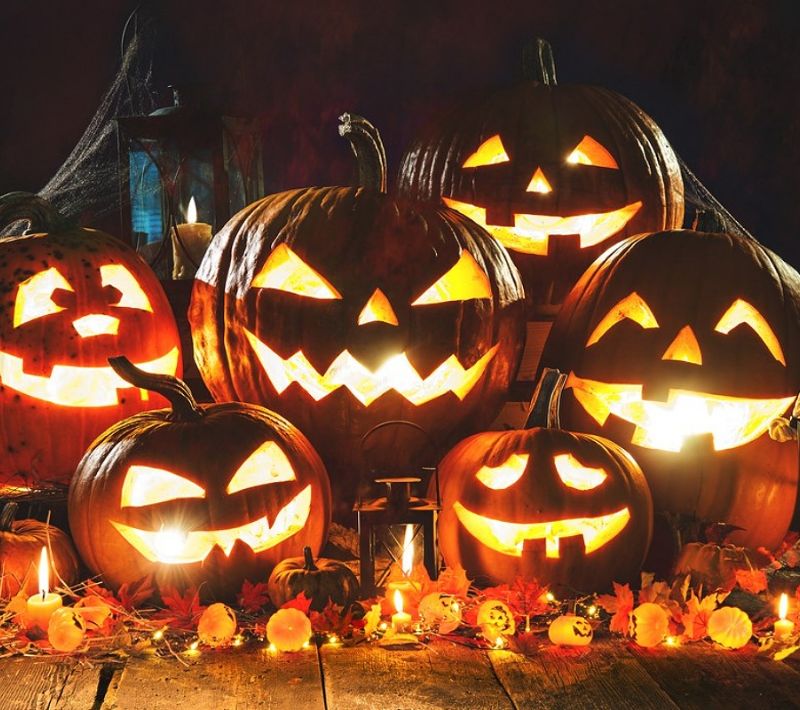Should Christians Celebrate Halloween? Exploring Its Origins and Controversies

Halloween is one of the most widely celebrated holidays in the world. People carve pumpkins, dress up in spooky costumes, and of course, even kids look forward to trick-or-treating for bags full of candy.
But as innocent as these traditions might seem, there’s a longstanding debate among Christians about whether celebrating Halloween is appropriate. Should Christians take part in this festivity, or does its history and meaning clash with Christian values?
Let’s dig into the origins of Halloween and see where the controversy comes from. And, by the end, we’ll hopefully have a clearer answer to the question: should Christians celebrate Halloween?
The Origins of Halloween
To understand where Halloween stands today, we have to look at where it all started. The origins of Halloween go back over 2,000 years to the ancient Celtic festival of Samhain (pronounced “sow-in”).
The Celts, who lived in what is now Ireland, the United Kingdom, and northern France, celebrated Samhain on the night of October 31st. It marked the end of their harvest season and the beginning of winter—a time associated with death.
The Celts believed that on this night, the boundary between the living and the dead became blurred. Spirits, both good and evil, were thought to walk the earth. People feared these spirits and believed they could cause trouble by damaging crops or bringing sickness. To protect themselves, the Celts would light large bonfires and wear costumes made of animal heads and skins, hoping to disguise themselves from harmful spirits.
Now, let’s fast forward to the spread of Christianity.
As the religion grew, its leaders often blended Christian holidays with existing pagan celebrations to ease the transition for new converts. Samhain eventually merged with the Christian observance of All Hallows’ Eve, the night before All Saints’ Day, a time to honor saints and martyrs.
This blend of pagan and Christian traditions over time evolved into what we now know as Halloween.
Halloween Today: Harmless Fun or Something More?
These days, most people don’t think about Halloween as a spiritual or religious holiday. For many, October 31st is simply a fun day filled with costumes, candy, haunted houses, and parties.
The commercialization of Halloween—costumes, decorations, and endless candy sales—has made it a huge secular celebration. So, very little thought has been put into whether people should still be celebrating the festival.
But here’s where it gets tricky for Christians: the origins of Halloween are undeniably linked to ancient pagan practices, which some argue are incompatible with Christian beliefs. Others, however, feel that Halloween has lost its original meaning and is now just a fun, harmless tradition.
So, where should a Christian stand? Should they avoid the holiday because of its pagan roots, or can they participate in it as a cultural event, separate from its spiritual origins? Should Christians celebrate Halloween?
Let’s keep reading to find out.
The Christian Perspective: Two Sides of the Debate
The conversation about whether Christians should celebrate Halloween is far from new. It has been an ongoing discussion for years, and you’ll find strong opinions on both sides.
On one side, some Christians argue that Halloween directly contradicts biblical teachings. They often point to verses like Ephesians 5:11, which says,
“Have nothing to do with the fruitless deeds of darkness, but rather expose them.” [NIV]
For these Christians, the idea of celebrating a holiday that glorifies death, darkness, and the supernatural is seen as participating in something ungodly. So, they abhor it and argue fiercely against believers’ participation in the pagan festival (Halloween).
Another scripture often cited is Deuteronomy 18:10-12, which warns against engaging in practices such as witchcraft, divination, or contacting the dead. Since Halloween often features imagery of witches, ghosts, and demons, it can feel like the holiday is celebrating things that go against the core of the Christian faith.
Many of these Christians choose not to celebrate Halloween at all. Instead, they may opt for alternatives like Harvest Festivals or Hallelujah Nights, which focus on wholesome fun, community, and sometimes even an outreach element, offering a positive counter to Halloween.
On the other hand, some Christians see Halloween as an opportunity to connect with their neighbors and communities in a light-hearted way. They argue that Halloween, in its modern form, has drifted so far from its pagan origins that it no longer carries any real spiritual or religious significance. For them, it’s simply a chance to have fun, dress up, and spend time with friends and family.
This group often points to 1 Corinthians 10:23, where Paul writes,
“Everything is permissible, but not everything is beneficial.”
In other words, they believe that Christians are free to celebrate Halloween as long as they’re mindful of how they do it. Instead of glorifying fear or death, they focus on having a good time, showing love to their neighbors, and even using Halloween as an opportunity for evangelism.
What are your thoughts on that? Does turning a seemingly “bad” thing into “good” make it alright? Well, let’s keep reading to learn more and see if we can separate Halloween from its pagan roots.
Can You Separate Pagan Roots from Modern Traditions?
At this point, you might be wondering: does it really matter what the origins of Halloween are if the way we celebrate it today is so different?
That’s a tough question, and it’s one that each Christian needs to answer for themselves.
On one hand, it’s true that most people today don’t think about the pagan origins of Halloween when they’re carving pumpkins or taking their kids trick-or-treating. For many, Halloween is purely a cultural event with no spiritual meaning attached.
But on the other hand, some Christians feel uneasy about participating in any tradition that has pagan roots, even if the meaning has changed over time. They may feel that celebrating Halloween, even in its modern form, is a subtle way of endorsing values that contradict their faith.
It’s important to remember that what might feel harmless to one person could feel wrong to another. And that’s okay. Christians aren’t all the same, and it’s perfectly normal to have different convictions on this issue. As such, no one person should enforce their conviction on another person. The Christian walk has and will always be a personal journey with God.
What Are The Alternatives?
If you’re a Christian who’s uncomfortable with the idea of celebrating Halloween but doesn’t want to completely withdraw from the day, there are plenty of alternatives you can consider. Many churches host events on All Hallows’ Eve like Harvest Festivals, which offer fun, family-friendly activities without the spooky or dark elements of Halloween.
Other churches host “Trunk or Treat” events, where families decorate the trunks of their cars and hand out candy in a safe controlled environment. These events often have a positive message and provide a fun alternative for families who want to participate in the community without engaging in traditional Halloween activities.
Some Christians also see Halloween as a great opportunity to show kindness and love to their neighbors.
Instead of turning off the porch light and avoiding trick-or-treaters, they hand out candy with a smile and maybe even include a friendly note or Bible verse in cute, sticky notes. For them, doing that is a simple way to shine a little light on a night that’s often associated with darkness.
Making a Personal Decision
At the end of the day, whether or not to celebrate Halloween is a personal decision that each Christian needs to make for themselves. It’s a decision that should be based on prayer, reflection, and a careful consideration of your own faith and values.
If you’re someone who feels convicted that celebrating Halloween is wrong, then you should follow that conviction.
Romans 14:23 says,
“Whatever is not from faith is sin.”
If you can’t participate in Halloween with a clear conscience, then it’s better to refrain.
As Christians, we are called to follow the leading of the Holy Spirit.
“For all who are led by the Spirit of God are children of God.”
[Romans 8:14 NLT]
But if you’re someone who sees Halloween as harmless fun and doesn’t feel that it conflicts with your faith, then there’s nothing wrong with celebrating it in a way that aligns with your values. Just be mindful of how you’re participating, and be sure to reflect Christ in all your actions.
Final Thoughts
So, should Christians celebrate Halloween? The answer isn’t a simple yes or no. It depends on your personal convictions, your understanding of scripture, and your approach to the holiday.
What’s most important is that you make your decision thoughtfully and prayerfully, keeping in mind that your faith should always guide your actions. Whether you choose to celebrate Halloween, opt for an alternative, or avoid it altogether, the key is to be intentional about how you engage with the world around you.
At the end of the day, it’s not about whether you celebrate Halloween on October 31st—it’s about how you live out your faith every day of the year. Shalom!
And to those celebrating Halloween this year, it’s spooky season again! Happy Halloween!

